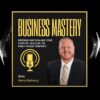
Building a high performing and effective team with a strong culture is a challenge many companies face. When hiring, companies will often say that they look for a candidate that is a team player. However, many times they have not qualified what that really means and the definition may not be shared and endorsed by others or have competing factors like being in a rush to fill positions, creditability being given for having worked at a competitor or possessing a specific skill set. In addition, there is often a lack of cohesion with the interview and debrief process.
One way to improve the process is to really qualify what a team player is and Pat Lencioni does this well in his latest book The Ideal Team Player: How to Recognize and Cultivate the Three Essential Virtues.

Lencioni outlines three virtues of an ideal team player: humility, hunger and smarts focused on EQ not IQ and through a story illustrates the importance of hiring someone with all these traits. He points out that virtues have been developed and team players aren’t born but rather developed through their personal and professional experiences and having a certain level of self-awareness and personal development. Lencioni shows the challenge of trying to build an effective team when members are lacking one or more of the virtues.
The Three Virtues are:

Humility: Ideal team players are humble. They lack excessive ego or concerns about status. Humble people are quick to point out the contributions of others and slow to seek attention for their own. They share credit, emphasize team over self and define success collectively rather than individually. Their humility does not mean that they are not confident, but they know how to put We before Me. This virtue ranks as the most important of the three.
Hungry: Ideal team players are hungry. They are always looking for more things to do, learn and to take more responsibility. Hungry people rarely need to be pushed by their boss to work harder because as they are self-motivated and constantly thinking ahead about the next opportunity and how to make a valuable contribution.
Smart (EQ not IQ): Ideal team players are smart meaning they have solid common sense about people. Smart people know what is happening in a group situation and how to deal with others in the most effective way. They show good judgment and intuition around the subtleties of group dynamics and with other team members and understand the impact of their words and actions.
Top 5 ways to incorporate the three virtues in your organization:
- Define and be specific:There should be a clear understanding enterprise wide what these virtues mean
- Collective debriefing:Do not interview in silos but share collectively on what people heard, observed and felt during the interviews. Panel interviews can be a great way to get the collective effort going and as way to calibrate if candidates have the three virtues
- Real-world work examples:To go deeper and see if See how people respond to a “real life” scenario or case that you present in the interview
- Trust you gut:Pay attention to any doubts you might have on a candidate’s virtues and investigate to understand and talk it through with colleagues
- Take your time:Rushing or just getting someone hired can be a costly mistake, negatively impact culture and end up taking a lot more time to fix
You can still use the three virtues with an existing team as sharing these qualities can prompt some very good discussions about what we want and how we want to do it and with what kind of culture. I often recommend that clients read The Ideal Team Player as it is a helpful way to calibrate how their own organization views being a team player. Many clients have felt it was extremely helpful when preparing for a high growth period and when trying to understand an increase in turnover and when preparing for growth/merger integration.
If your organization is interested in learning more about how to identify and attract ideal team players as well as getting support with team effectiveness solutions, please contact Michèle Barnett Berg at [email protected].
About the Author: Michèle Barnett Berg, Executive Coach, Leadership Developer & Facilitator
About MCG Partners
MCG Partners a woman-owned, Greater Boston-based consultancy specializing in executive coaching, leadership development, talent management, and organizational development solutions. We help businesses optimize success through the entire management life-cycle. MCG Partners is also a Predictive Index® (PI®) certified partner.
To learn more about MCG Partners’ services or The Predictive Index®, contact John Griffith at [email protected] or visit mcgpartners.com.
[/fusion_text][/fusion_builder_column][/fusion_builder_row][/fusion_builder_container]







